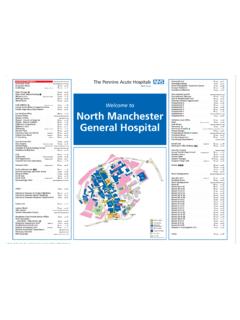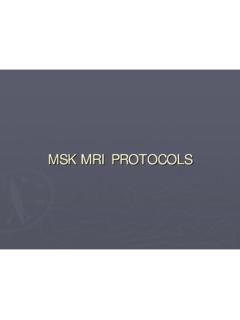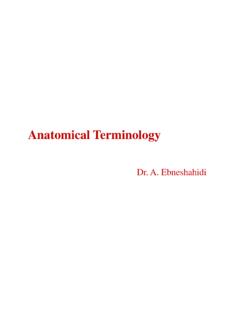Transcription of Yasargil Titanium and Phynox Aneurysm Clips - Aesculap …
1 Yasargil Titanium and Phynox Aneurysm Clips MRI SAFETY INFORMATION. MR Conditional The Yasargil Titanium and Phynox Aneurysm Clips are MR Conditional. Non-clinical testing demonstrated that the Yasargil Aneurysm clip is MR Conditional. A patient with this device can be safely scanned immediately after implantation in an MR system meeting the following conditions: Static magnetic field of 3-Tesla or less Titanium clip - Maximum spatial gradient magnetic field of 3000 Gauss/cm ( T/m) or less Phynox clip - Maximum spatial gradient magnetic field of 1,500-Gauss/cm ( T/m) or less Maximum MR system reported, whole body averaged SAR of4-W/kg (First Level Controlled Operating Mode). Do not take the Aneurysm clip applier into the MR environment.
2 It is MR Unsafe. Under the scan conditions defined above, the Yasargil Titanium Aneurysm clip is expected to produce a maximum temperature rise of + C after 15 minutes of continuous scanning. In non-clinical testing, the image artifact caused by the device extends approximately 5 mm from the Yasargil Titanium Aneurysm clip when imaged with a gradient echo pulse sequence and a 3-Tesla MR system. Under the scan conditions defined above, the Yasargil Phynox Aneurysm clip is expected to produce a maximum temperature rise of + C after 15 minutes of continuous scanning. In non-clinical testing, the image artifact caused by the device extends approximately 20mm from the Yasargil Phynox Aneurysm clip when imaged with a gradient echo pulse sequence and a 3-Tesla MR system.
3 For MRI Safety Information, including artifact information, Warnings and Precautions see product IFU. SOP-AIC-5000566 (TA011251-US). NOTE: Aesculap currently markets two lines of Aneurysm Clips ; one from a cobalt alloy that we refer to as Phynox and one from a a Titanium alloy. Phynox Clips have been available since 1983 and have catalog numbers that begin with "FE". Titanium Clips have been available since 1995 and have catalog numbers that begin with FT . Prior to 1985, Aesculap distributed various models of Aneurysm Clips manufactured from stainless steel. These Aneurysm Clips were identified with the letters "FD" and have not been proven safe for exposure to MRI. For this reason, Aesculap does not recommend the use of MRI on a patient implanted with a Yasargil Aneurysm clip identified with the letters "FD".









